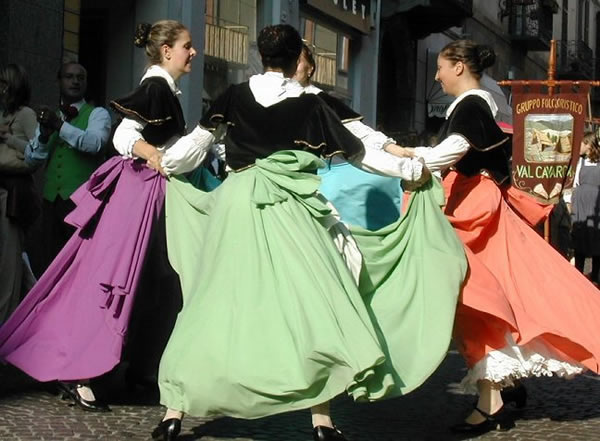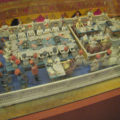I was recently interviewed for an article about third-culture kids, to be published in the Christian Science Monitor. In an hour,s taped phone conversation, Erik Olsen asked many questions, including: “Being an outsider in all cultures, how does that make you feel?” I thought for a moment, and said: “Superior.”
No doubt that statement will be quoted in the article. <wry grin> I tried to explain that, as outsiders in every culture, we TCKs see things with a more objective eye than insiders who are familiar only with their own culture*. This doesn’t mean that we despise every culture we encounter, or have nothing but criticism to offer. But it’s common for a TCK to think: “In country X they do this differently, and it seems to have certain advantages. Why couldn’t it be done that way here?” This is NOT the stereotypical case of ugly Americans who think that everything is better in America. In fact, most TCKs, including American ones, tend to criticize their “home” culture more than any other.
The problem is: no one wants to hear it. Cultures and countries often suffer from a form of groupthink in which “our way is best” or “we’ve always done it this way, why should we change?”And people resent criticism of their culture, however well-intended, from outsiders.
I was reminded of this when last week’s article about Italian Freedom Fighters got a few Italian backs up. I was accused (justifiably, for that article) of stereotyping Italians as a race of unrepentant scofflaws. Of course I don’t really believe that ALL Italians routinely break the law, though I do feel safe in asserting that a larger proportion of Italians than, say, Americans or Germans or Swiss, are inclined to disregard or evade laws that are inconvenient to them individually, such as those regarding taxes. This attitude goes all the way to the top in Italy, with consequences far beyond the embarrassment of having people in high government posts under indictment for tax evasion, bribery, and fraud.
I can take some ironic consolation in knowing that, if that article had been written by an Italian, many Italians would have leaped to agree with it. Italians (as they themselves have told me) are very fond of criticizing themselves and their country – but apparently it’s not okay for me to do it.
Then I received an irate email from an Italian woman living in England. She took exception to a number of my statements about the Italian education system, and pointed out how much better it is than the British or American systems. I will certainly grant that for the average American public school (I don’t know enough about the British to comment), but the point of most of my articles was not to compare the Italian system (favorably or un-) with other systems. We’re in Italy, and can’t afford the international schools even if we wanted to, so our daughter goes to Italian public schools which, while they have pluses, also have minuses – as is true of ANY school system.
What got to me about this lady’s email was her concluding sentence (originally in Italian): “Don’t denigrate the country in which you are a guest. As they tell me and my kids when we comment on England: ‘If you do’t like it, go back to your own country.’ ”
This isn’t the first time I’ve heard this sort of statement, though it is a first for me in Italy. It raises some questions: At what point will I have a “right” to criticize? How long does it take to no longer be a “guest” but a member of the community? I’ve been in Italy for 14 years, my husband and daughter are Italian, I work for an Italian company. All that’s lacking is citizenship, and I could have that if I bothered to do the paperwork. At the very least, as a payer of Italian taxes, I have a right to complain when I’m not getting my money’s worth from state services – perhaps more so than the many Italians who evade taxes!
But, no matter how long I live here, there will always be Italians who will resent anything negative I have to say about Italy, and will invite me to “go home.” The sad irony is that the same thing happens at “home“ Americans are, on average, the LEAST tolerant of criticism of their culture, from insiders or outsiders. Many’s the time I was told: “If you don’t like it, you can just leave.” So I did.
And you still can hear me singin’ to the people who don’t listen,
To the things that I am sayin’, prayin’ someone’s gonna hear.
And I guess I’ll die explaining how the things that they complain about,
Are things they could be changin’, hopin’ someone’s gonna care.I was born a lonely singer, and I’m bound to die the same,
But I’ve got to feed the hunger in my soul.
And if I never have a nickel, I won’t ever die ashamed,
‘Cause I don’t believe that no one wants to know.Kris Kristofferson “To Beat the Devil”
Note: The term “culture,” as used by anthropologists, means (definition Webster’s): “the ideas, customs, skills, arts, etc. of a people or group, that are transferred, communicated, or passed along, as in or to succeeding generations.” Culture, in this sense, is a shared set of beliefs and behaviors, and does NOT refer to so-called “high culture,” e.g. art and music.
Share your own cultural kibitzes below.












